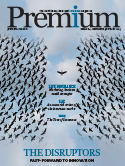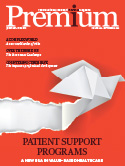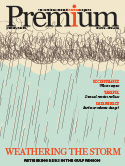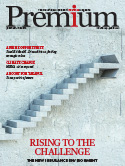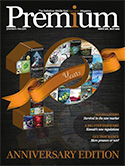‘Gap between mental health awareness and counselling’

The level of comfort in talking about mental health over the past 12 months has increased with 6 in 10 believe people will be more comfortable talking about their mental health in the future. However, just 1 in 10 made use of counselling services during the pandemic, demonstrating a disconnect in comfort levels between talking about mental health and actively accessing support services.
This was revealed through new multi-market research carried out by Allianz Partners. The research was conducted by Ipos MRBI amongst expat and local employees in the UK, Germany, Canada, UAE and Singapore with the aim of measuring the impact of Covid-19 on respondents’ mental health and helping employers understand how best to support the mental health of their teams.
The research highlighted the importance of employers investing in health and wellbeing supports and services to ensure a sustainable and productive workforce, as many staff are still dealing with the mental health challenges of the pandemic. Although it’s evident that employers across the globe have been stepping up to provide support, a lot more can be done to ensure employees are using and reaping the benefits of these supports. Depression and anxiety cost the global economy USD1 trillion a year in lost productivity. Providing appropriate mental health support to employees improves not only the employee’s quality of life but also increases companies’ productivity.
Paula Covey, chief marketing officer for Health at Allianz Partners commented, “While the health insurance industry always recognised the importance of mental health as well as physical health, in the wider public domain it felt, to some degree, like the silent elephant in the room that everyone knew was there, but people were sometimes uncomfortable talking about. Our long-term goal is to make talking about mental health as comfortable as talking about a sprained wrist. We want to encourage dialogue and help people to understand that mental health challenges are normal, sometimes frequent, and help them understand when and how to make use of support services.
“It’s clear from the research that awareness of mental health has increased and people are more comfortable talking about it and this is extremely encouraging. However not all employees feel supported and there’s still a very low up-take of some mental health services like Employee Assistance Programmes (EAP) and counselling. I think there’s a real opportunity here for employers to build on their mental health support programmes and make some significant strides forward.”
Over the past number of years employers have increased mental health supports and services to their employees, a trend that is likely to continue post pandemic. Yet, only 2 in 5 employees feel that resources provided by their employer are sufficient to support their mental health. So while some companies have been stepping up, particularly in the UAE, for most, there’s more work to do. Providing a variety of services is important, both in-person and digitally. As is having a combination of HR sponsored activities like wellness talks and those which are based around personal relationships, because many people only feel comfortable talking about their mental health with friends or family.
Of the mental health support services provided by employers, the top 5 most valued by employees were information, digital team get togethers, counselling services, extra time off and classes.
Despite this, less than a quarter of respondents feel comfortable discussing their mental health with a counsellor, which may mean that employees don’t know enough about Employee Assistance Programmes (EAP) or exactly what kinds of scenarios counselling can help with. It’s clear that employers will need to invest in education and awareness campaigns around these services. And as most employees are not comfortable discussing their mental health with their employers, it’s important to emphasise that counselling and EAP services are completely confidential.









